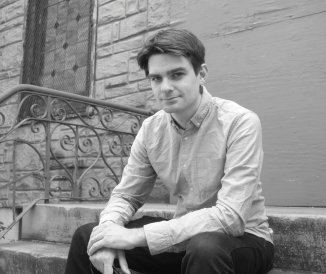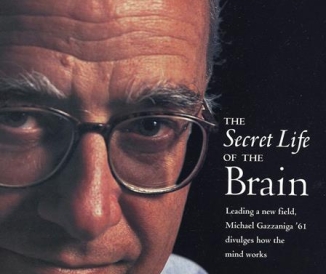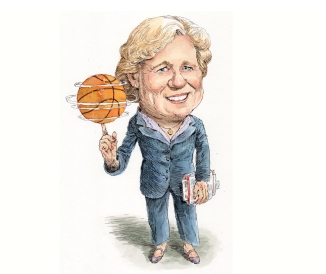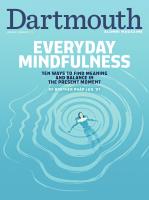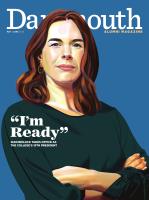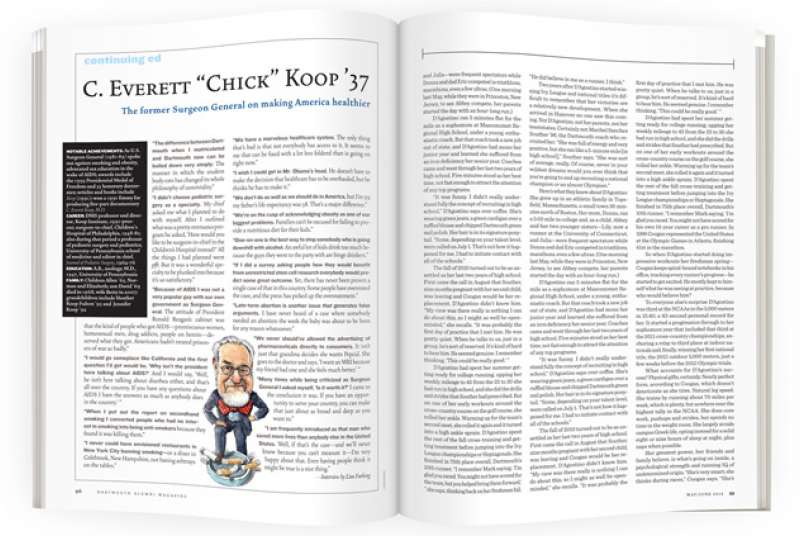
C. Everett “Chick” Koop ’37
Notable Achievements: As U.S. Surgeon General (1981-89) spoke out against smoking and obesity, advocated sex education in the wake of AIDS; awards include the 1995 Presidential Medal of Freedom and 35 honorary doctorates; articles and books include Koop (1991); won a 1991 Emmy for producing five-part documentary C. Everett Koop, M.D.
Career: DMS professor and director, Koop Institute, 1991-present; surgeon-in-chief, Children’s Hospital of Philadelphia, 1948-81; also during that period a professor of pediatric surgery and pediatrics, University of Pennsylvania school of medicine and editor in chief, Journal of Pediatric Surgery, 1964-76
Education: A.B., zoology; M.D., 1947, University of Pennsylvania
Family: Children Allen ’65, Norman and Elizabeth; son David ’69 died in 1968, wife Betty in 2007; grandchildren include Heather Koop Fulton ’95 and Jennifer Koop ’92
“The difference between Dartmouth when I matriculated and Dartmouth now can be boiled down very simply: The manner in which the student body eats has changed its whole philosophy of conviviality.”
“I didn’t choose pediatric surgery as a specialty. My chief asked me what I planned to do with myself. After I outlined what was a pretty strenuous program he asked, ‘How would you like to be surgeon-in-chief in the Children’s Hospital instead?’ All the things I had planned went pfft. But it was a wonderful specialty to be plunked into because it’s so satisfactory.”
“Because of AIDS I was not a very popular guy with our own government as Surgeon General. The attitude of President Ronald Reagan’s cabinet was that the kind of people who got AIDS—promiscuous women, homosexual men, drug addicts, people on heroin—deserved what they got. Americans hadn’t treated prisoners of war as badly.”
“I would go someplace like California and the first question I’d get would be, ‘Why isn’t the president here talking about AIDS?’ And I would say, ‘Well, he isn’t here talking about diarrhea either, and that’s all over the country. If you have any questions about AIDS I have the answers as much as anybody does in the country.’ ”
“When I put out the report on secondhand smoking I converted people who had no interest in smoking into being anti-smokers because they found it was killing them.”
“I never could have envisioned restaurants in New York City banning smoking—or a diner in Colebrook, New Hampshire, not having ashtrays on the tables.”
“We have a marvelous healthcare system. The only thing that’s bad is that not everybody has access to it. It seems to me that can be fixed with a lot less folderol than is going on right now.”
“I wish I could get in Mr. Obama’s head. He doesn’t have to make the decision that healthcare has to be overhauled, but he thinks he has to make it.”
“We don’t do as well as we should do in America, but I’m 93; my father’s life expectancy was 38. That’s a major difference.”
“We’re on the cusp of acknowledging obesity as one of our biggest problems. Families can’t be excused for failing to provide a nutritious diet for their kids.”
“One-on-one is the best way to stop somebody who is going downhill with alcohol. An awful lot of kids drink too much because the guys they went to the party with are binge drinkers.”
“If I did a survey asking people how they would benefit from unrestricted stem cell research everybody would predict some great outcome. Yet, there has never been proven a single case of that in this country. Some people have overstated the case, and the press has picked up the overstatement.”
“Late-term abortion is another issue that generates false arguments. I have never heard of a case where somebody needed an abortion the week the baby was about to be born for any reason whatsoever.”
“We never should’ve allowed the advertising of pharmaceuticals directly to consumers. It isn’t just that grandma decides she wants Pepcid. She goes to the doctor and says, ‘I want an MRI because my friend had one and she feels better.’ ”
“Many times while being criticized as Surgeon General I asked myself, ‘Is it worth it?’ I came to the conclusion it was. If you have an opportunity to serve your country, you can make that just about as broad and deep as you want to.”
“I am frequently introduced as that man who saved more lives than anybody else in the United States. Well, if that’s the case—and we’ll never know because you can’t measure it—I’m very happy about that. Even having people think it might be true is a nice thing.”


